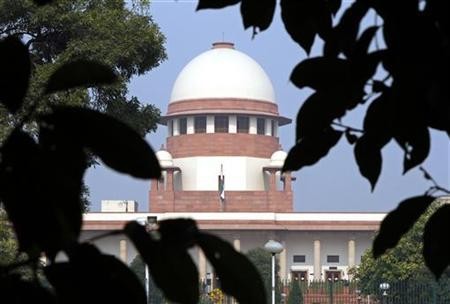
Coming down heavily on political parties that promise freebies to voters in their election manifestos, Supreme Court on Friday asked the Election Commission to frame guidelines to restrain such activities, saying that it shakes the foundation of democracy by influencing the voters.
A bench comprising justices P Sathasivam and Ranjan Gogoi said that distribution of freebies shake the foundation of democracy and disturb fair elections by influencing voters.
"We direct election commission to take up the task (of framing guidelines) immediately," the apex court said. It however observed that promising freebies in the election manifesto doesn't amount to corrupt practice under section 123 of the Representation of Peoples Act.
The court gave the ruling after advocate S Subramaniam Balaji filed a case against the distribution by Dravida Munnettra Kazhagam (DMK) and All India Anna Dravida Munnetra Kazhagam (AIADMK) governments in Tamil Nadu.
"I am confident of getting a positive verdict for India as a whole," Balaji told IANS.
The DMK government had distributed free colour television sets to the people of the state as part of its pre-election promise in 2006. The AIADMK government had also distributed free mixers, grinders, fans and laptops and other freebies.
In fact, distribution of items like television sets, laptops, tablets and other household items as part of the promises made before the elections has become a norm among political parties. The latest to fall in the bandwagon is Samajwadi Party government in Uttar Pradesh, with its chief minister Akhilesh Yadav distributing over 8,000 free laptops to students in the state last month.
The SC ruling could prevent political parties from indulging in populist election manifesto ahead of the Lok Sabha elections next year and assembly elections scheduled in a few states this year.
It may be recalled that the Election Commission in 2006 had raised concern over the practice of promising freebies in the election manifesto. The then Chief Election Commissioner B B Tandon had strongly criticised both DMK and AIADMK for indulging in what he called "competitive offer of freebies" to voters during 2006 state assembly polls.









